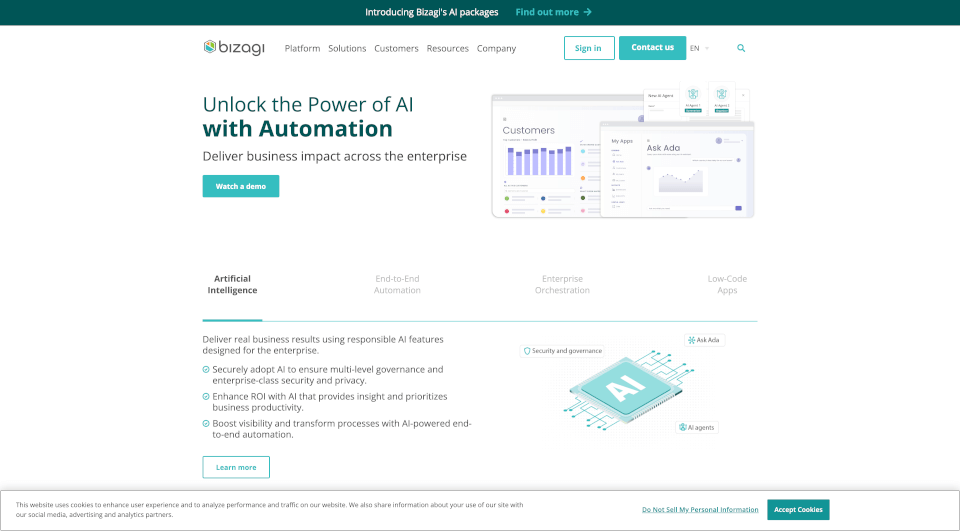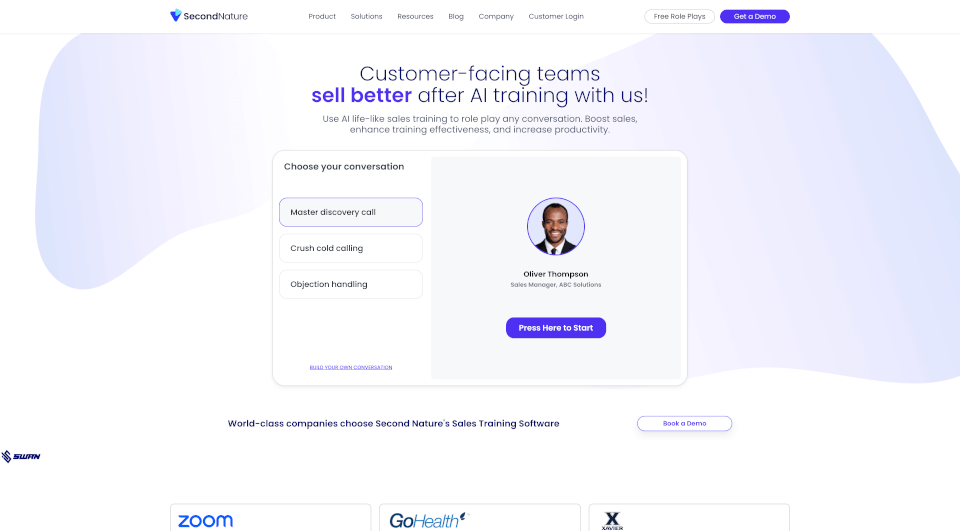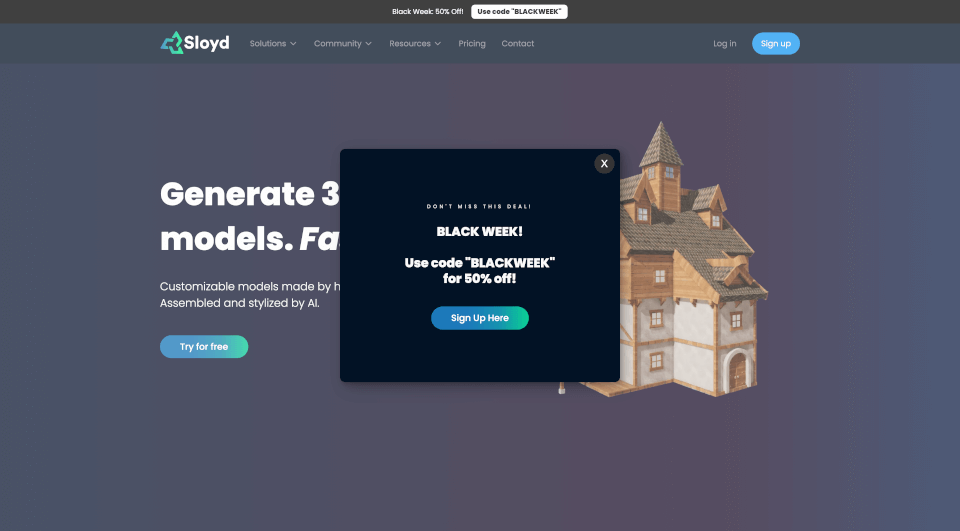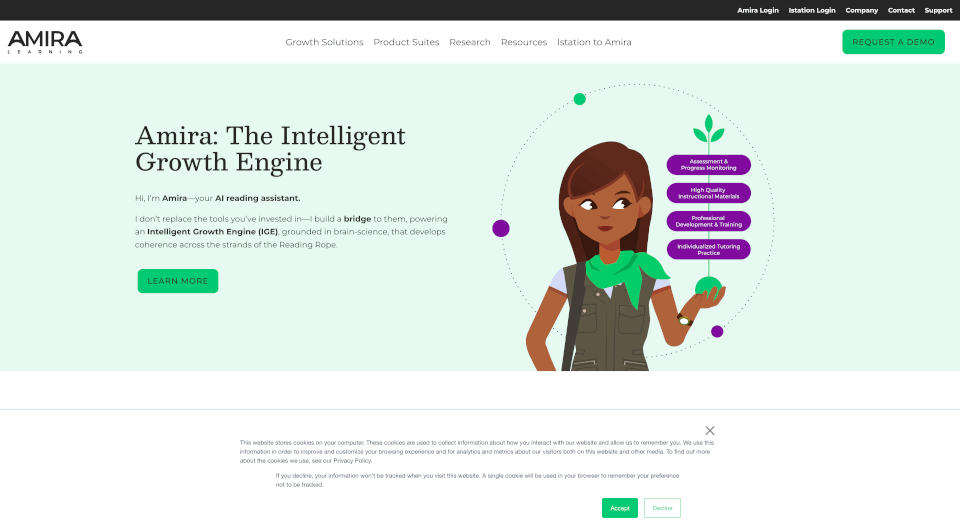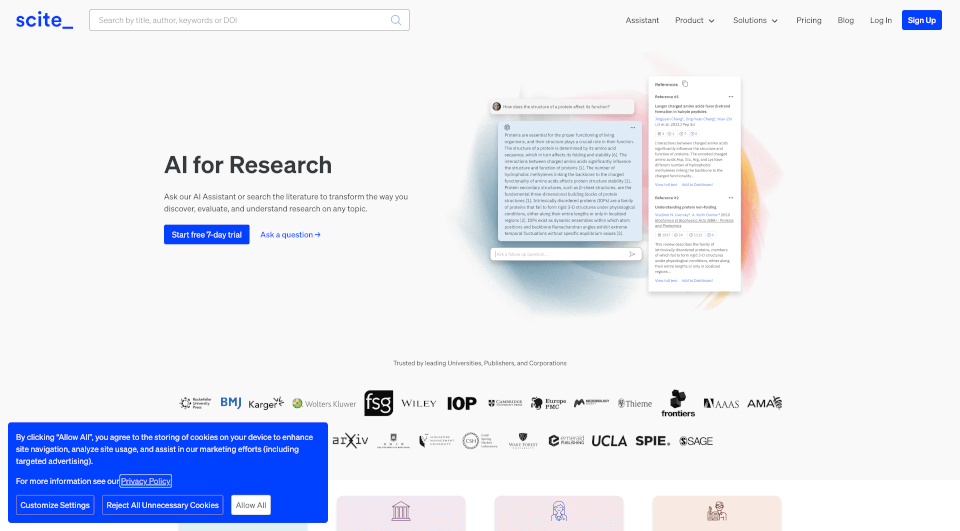What is Bizagi?
Bizagi is an innovative low-code platform that empowers enterprises to automate processes and build sophisticated applications with ease. Leveraging the power of artificial intelligence, Bizagi provides tools that help organizations transform their operations, enhance productivity, and foster seamless integration among various business functions. Whether you're looking to optimize existing workflows or create entirely new applications, Bizagi's comprehensive suite of capabilities is designed to meet the complex needs of modern businesses.
What are the features of Bizagi?
Bizagi encompasses a wide range of platform capabilities that streamline process automation and application development. Key features include:
Process Automation
Automate repetitive and manual tasks, improving efficiency and reducing errors. Bizagi's intuitive interface makes it simple for users to design and implement process workflows that can be customized to their specific needs.
Low-Code Apps
With Bizagi’s low-code development environment, users can create robust applications quickly, allowing businesses to accelerate their time-to-market for new solutions. Use pre-built components and templates to simplify the development process.
Enterprise Orchestration
Integrate your systems, data, and processes for greater visibility and management. Bizagi helps you connect various business functions, making it easier to manage tasks and workflows across the organization.
AI Assistant and AI Agents
Take advantage of advanced AI capabilities to drive automation and analytics within your processes. Utilize AI agents to perform tasks, provide insights, and enhance decision-making.
Process Improvement
Leverage tools for process mining and simulation to continuously assess and enhance your workflows. Identify bottlenecks and inefficiencies to optimize operations effectively.
Governance and Compliance
Ensure that your processes adhere to industry regulations and corporate governance standards. Bizagi incorporates features that help maintain compliance and manage risk.
What are the characteristics of Bizagi?
Bizagi’s low-code platform stands out with its unique characteristics that cater to diverse organizational needs:
- Cloud-Native PaaS: A cloud-based platform that simplifies management and scalability without the burden of on-premise maintenance.
- Integration Capabilities: Easily integrate with various third-party systems, enhancing connectivity across your organizational ecosystem.
- Scalability: The platform is designed to grow with your business, accommodating increasing demands and user needs without compromising performance.
- Analytics and Reporting: Built-in analytics tools allow users to gain insights from operational data, enabling informed decision-making and strategy development.
What are the use cases of Bizagi?
Bizagi's low-code platform can be applied in numerous scenarios across different industries:
Manufacturing
Automate supply chain processes, manage inventory, and enhance production workflows to improve efficiency and reduce costs.
Banking and Financial Services
Streamline customer onboarding, compliance checks, and transaction processing with automated workflows that enhance user experience and security.
Healthcare
Facilitate patient management, appointment scheduling, and billing processes while ensuring regulatory compliance and data security.
Retail
Optimize inventory management, order processing, and customer service operations to create seamless shopping experiences and boost sales.
Government
Enhance public service delivery by automating citizen engagement processes, compliance tracking, and case management.
How to use Bizagi?
Getting started with Bizagi is straightforward:
- Sign Up: Create an account on the Bizagi platform.
- Explore the Dashboard: Familiarize yourself with the user interface and features available.
- Select a Process: Identify which processes you want to automate or improve.
- Design Workflows: Use the drag-and-drop interface to create your workflow diagrams easily.
- Integrate Systems: Connect Bizagi with existing systems for data exchange and interoperability.
- Test and Deploy: Preview your applications or processes to ensure they meet your requirements before full deployment.
